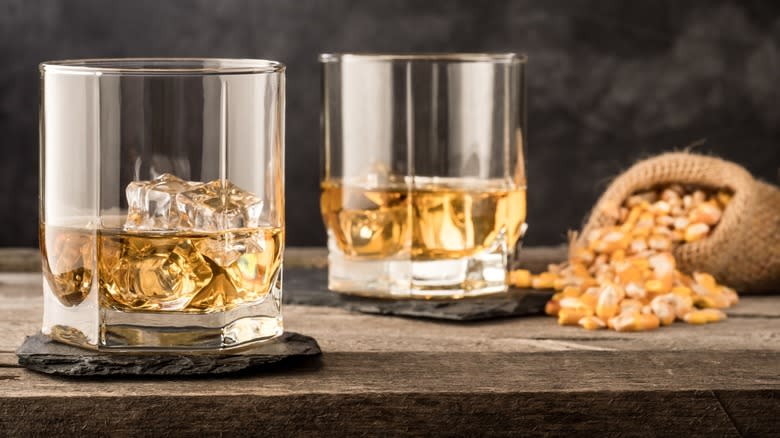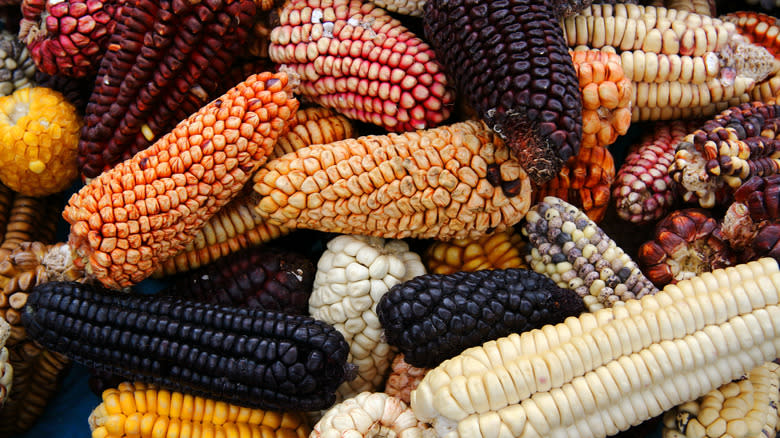The Corn Selection Process For Making Bourbon Isn't As Refined As You May Think

Bourbon distillers are getting creative and paying more attention to the little details of their craft these days. But while plenty of focus is being directed toward aspects like the maturation process (with the rise of single barrel bourbons), or whether the mash bill uses rye or wheat, there doesn't seem to be as much care given to the star of the show – the corn. You might think that bourbon makers would demand nothing but the best corn for the job, but corn is more complicated than it first appears.
To put this more in context, think about how much emphasis is placed on the grape varietal in winemaking. It's so fundamental to how a wine tastes that we separate wines by what grape they're made with. That's not the case with whiskey. Roughly 99% of the corn grown in the United States is yellow dent corn. Dent corn isn't a type of corn, though, it's a description of how long the corn is grown.
Dent corn is so-called because it's allowed to mature until there's a dent or divot in the crown of the kernels. At this point, most of the sugar has been converted to starch and the kernels have grown hard. Because you don't eat dent corn straight off the cob, you aren't likely to see it in your grocery store except in a processed form. Bourbon is almost universally made with yellow dent corn, which begs the question: Is that from choice or circumstance?
Read more: The 27 Best Bourbon Brands, Ranked
Other Corn Varieties Have Been Used To Make Bourbon

Bourbon is primarily made from yellow dent corn because of how cheap and readily available it is -- but that hasn't stopped some distilleries from breaking the mold by using heirloom corn as a way to stand out from the crowd. For example, Bloody Butcher corn is a red varietal used by distilleries like Jeptha Creed and Wood Hat Spirits for its bold spice and rich body. There are dozens of heirloom corn varieties and a growing community of small distilleries making corn whiskey and high-corn bourbon with these different grains such as Ironroot Republic, Balcones Distilling, and Bluegrass Distillers.
Because heirloom corn isn't commonly grown, these distilleries have to get creative about how they source their ingredients. That means they either need to start growing it themselves or partner with a farmer nearby who is willing to go through the trouble. These more unique corn varieties aren't as common because there isn't as much of a market for them but also because they are typically more difficult to grow.
Modern corn is resistant to disease and provides a high yield, making it cheaper and more reliable to produce. Heirloom corn is more expensive because it's riskier to grow. Pests, wildlife, and disease may destroy part of the crop and open-pollinated varieties run the risk of genetic contamination if nearby farms are also growing corn. All of this adds up to a highly niche sector of bourbon that will likely stay niche due to the economic difficulties involved in heirloom corn production.
Read the original article on Tasting Table

